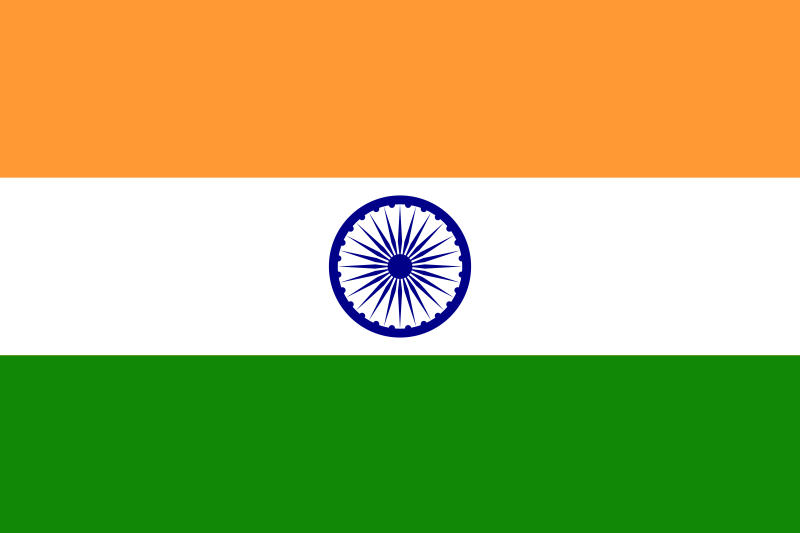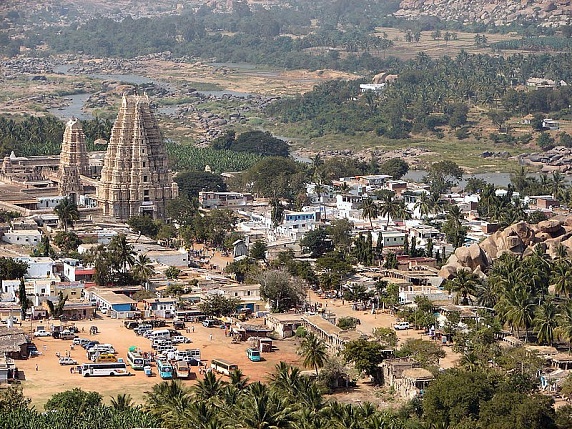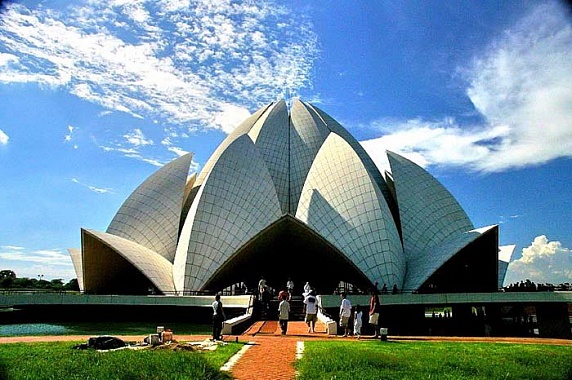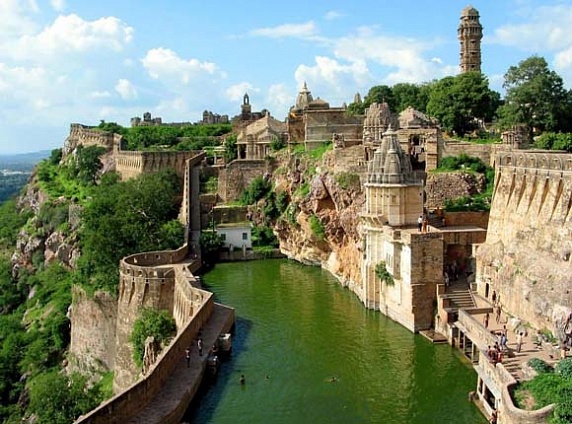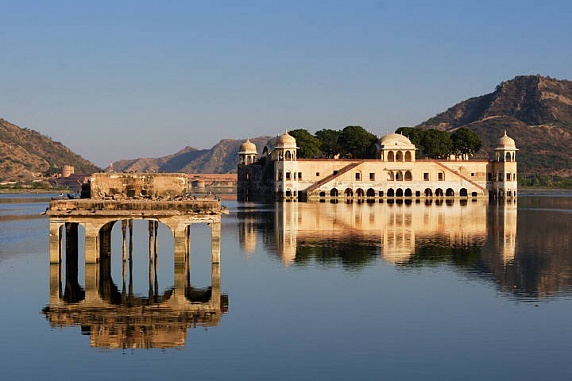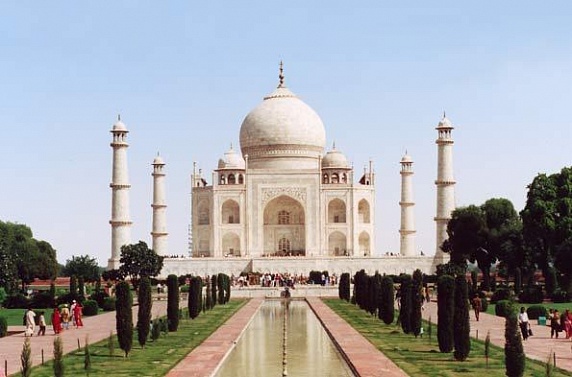 Республика Индия
Республика Индия
Transcript of Remarks and Replies to Media Questions by Russian Foreign Minister Sergey Lavrov at Joint Press Conference Following Talks with Indian Foreign Minister S. M. Krishna, New Delhi, November 29, 2010
Foreign Minister Lavrov: On behalf of our delegation and myself, I would like to thank the Indian colleagues for the invitation to visit India, for the hospitality and excellent arrangements made. We paid the main attention to matters relating to the preparation of Russian President Dmitry Medvedev's visit to India. This will be a very important stage in the development of bilateral relations, as this year marks the tenth anniversary of the signing of the Declaration on Strategic Partnership between our two countries.
Today we expressed an intention to prepare for signing during the visit a solid package of documents that will deepen our partnership and collaborative efforts in the most diverse fields, including energy, high technology, outer space, military-technical cooperation, and more.
We reaffirmed the need to carry out the agreements that were reached in recent months during the meetings of the Russian-Indian intergovernmental commissions on trade, economic and military-technical cooperation. We actively support the work of the Russian-Indian Trade and Investment Forum. This entity was created by our entrepreneurs, its regular meeting will be held next month.
We have with India a wide convergence of ideas on regional and international issues. I am convinced that the plan signed today for ministerial consultations for the next two years will further strengthen our cooperation on this subject. We work closely and coordinate our steps in the most diverse formats. They, of course, include the UN, the various cooperation mechanisms in the Asia-Pacific region, such informal mechanisms as RIC and BRIC, as well as the SCO. With the election of India to the UN Security Council as a nonpermanent member for 2011-2012 our field of cooperation becomes even more extended. We welcome the intention of India to move from observer status in the SCO to full membership. We believe that the UN Security Council will only benefit if India will be present in it as a permanent member. We proceed from this in the ongoing negotiations on the reform of the Security Council, following which we expect to reach agreement.
In general, our collaboration with India in the international arena is aimed at mobilizing collective efforts to deal with the problems facing the world today. We are united in understanding the necessity of creating a polycentric democratic system of international relations based on strict adherence to the rules and principles of international law. We will continue to develop the Russian-Indian strategic partnership, which, I believe, will reach a qualitatively new level as President Medvedev visits India.
Question: What specific Russian-Indian projects were discussed today? At what stage is the work toward signing documents on cooperation in the field of designing fifth-generation fighter aircraft?
Lavrov: Speaking of the specific projects that we discussed today, I have already said that we have reaffirmed the need to implement the agreements reached at the recent sessions of the Intergovernmental Commission on Trade, Economic, Scientific and Technical Cooperation and the Intergovernmental Commission on Military-Technical Cooperation.
The projects which we discuss and implement with our Indian colleagues cover almost every conceivable sector. This is trade and mutual investment and outer space and energy, including nuclear energy, and military-technical cooperation, including the development of the fifth generation fighter jet.
Question: While countries across the world are working for the flourishing of relations, there are forces that are sometimes able to bring some kind of misunderstanding between nations and even destabilize the international situation. I'm talking about document releases by WikiLeaks. How could you comment on the recent releases related to Russia? How seriously is one to treat them? To what extent may they affect Russian-American relations?
Foreign Minister Lavrov: As to the releases, it is a fun read. It expands our knowledge about the possibilities of human potential, but in practical politics, we prefer to be guided by concrete actions of our partners. We will continue to use exactly that as our main criterion.
Question: Friendship between India and Russia is a time-tested one. At the same time Russia conducts close contacts and talks with Pakistan. Recently there was a quadripartite meeting on Afghanistan, which the representatives of Pakistan attended. Soon President Zardari is scheduled to visit Moscow. It is widely believed that Russia does not immediately condemn the terror attacks that are carried out from Pakistani territory. What are the dynamics of Russian-Pakistani relations today? How does Russia regard the current situation in the region? Pakistan is a part of the problem or its solution?
Foreign Minister Lavrov: I hope that your question is not dictated by the conviction that India and Pakistan are doomed to perpetual confrontation.
With regard to our attitude to the situation between New Delhi and Islamabad, we are sincerely interested in seeing these relations consistently normalize. We try to promote this, including through the various negotiating formats, one of the key among which is the Shanghai Cooperation Organization, where India and Pakistan are observers. We welcome the intention of the leaders of India and Pakistan to build communication and problem solvers.
There can be no compromise on the need for the toughest fight against terrorism. It is our consistent position. Together with all our partners in the international arena, we consistently urge the leadership of Pakistan to continue the measures it began to eliminate hotbeds of terrorism in Pakistani territory, and to prevent infiltration of extremists into neighboring countries. This is our invariable policy.
As to our contacts with the Pakistani leadership, here we, like all other normal countries, presume that it is necessary to talk and cooperate with everyone, involving all parties in collective efforts. This clearly needs to be done, because the alternative to this approach is isolation, which in international affairs breeds an impasse. We are witnessing this in Iraq and the Middle East. That's not our approach. We are for the involvement of all those on whom the solution of this or that problem depends.
November 30, 2010






